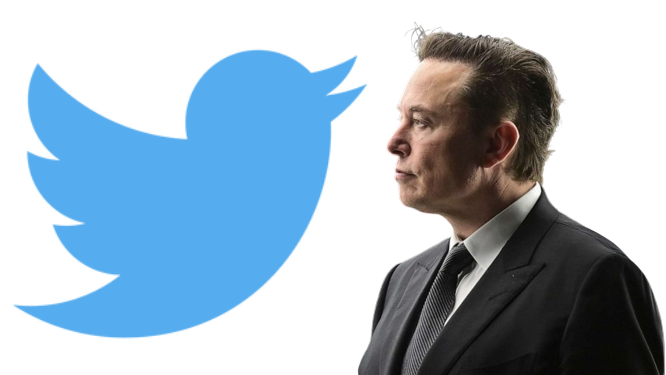Elon Musk has officially purchased Twitter
November 13, 2022
Elon Musk has officially bought Twitter.
Elon Musk has finally finished his acquisition of media giant Twitter. On Oct. 27, Musk closed the deal to buy Twitter. To many, Elon’s purchase of Twitter came out of nowhere. His takeover of Twitter began in the Spring of 2022.
In the Spring, Musk started buying shares of Twitter. His stake in the company quickly grew to a staggering 9.2 percent. This made him the largest shareholder of the company. In a securities filing, Musk disclosed his stake in the company valued at $2.89 billion.
Due to the size of the shares Musk owned, Twitter invited him to be part of their board of directors.
On April 14, Musk offered to buy Twitter at $54.20 per share. This would value the entire company at around $43 billion. Musk expressed his hopes to turn Twitter into a safe haven for free speech.
Not long after Musk offered to buy Twitter, stockholders adopted a “poison pill” strategy to prevent Musk from buying Twitter. A “poison pill” strategy is a defensive tactic used by stockholders to counteract someone looking to buy the company.
The strategy allows stockholders to buy more shares at a discounted price. This dilutes the amount of shares owned by the buyer, making the price to buy the company increase.
Musk and Twitter eventually came to an agreement and Musk agreed to buy the company for $44 billion.
In order to finance his bid to buy Twitter, Musk sold about $8.5 billion worth of his Tesla stock. Musk garnered about $46.5 billion in financing for his endeavor.
On May 13, Musk announced the Twitter deal would be temporarily put on hold. This was due to concerns he harbored over the amount of bot and spam accounts on the site.
Musk’s worries stemmed from a Reuters article talking about a public filing from Twitter. In the filing, Twitter said less than 5 percent of the users on the platform were fake accounts. Musk, skeptical of the findings, wanted details over how the calculations were made to determine the amount of fake accounts on the site.
Analysts at the time thought Musk was using the worry of fake accounts as a cover to bargain for a lower price for the company or to abandon the deal entirely.
On May 26, Twitter shareholders hit Musk with a class-action lawsuit. The lawsuit was over alleged stock manipulation. Twitter’s stock had fallen over 12 percent since Musk originally announced his intention to acquire Twitter.
Musk then threatened to pull out of the deal due to Twitter allegedly not providing information over the prevalence of bots on Twitter. Twitter came out and said it had been sharing all the information requested.
Musk moved to terminate the deal, citing the issue of fake accounts on the platform as the reason. Twitter, in turn, sued Musk in Chancery Court in Delaware so Musk would be forced to complete the deal. The court decided on an October date for the trial.
Musk proposed the completion of a deal to purchase Twitter. His proposal would revert to his original offer of $54.20 a share, which would lead to a total cost of about $44 billion.
Finally, on Oct. 28, Musk finished the deal to acquire Twitter. This was one day before the Chancery Court trial would have moved forward.
Musk soon began making changes to the company. He fired CEO Parag Agrawal, chief financial officer Ned Segal, chief legal officer Vijaya Gadde, and general counsel Sam Edgett. Twitter also began layoffs that would cut about half of its workforce.
As of Nov. 11, it has been two weeks since Musk purchased Twitter. Musk has big plans for Twitter, but only time will tell whether Musk’s leadership will lead Twitter to prosperity or to failure.




